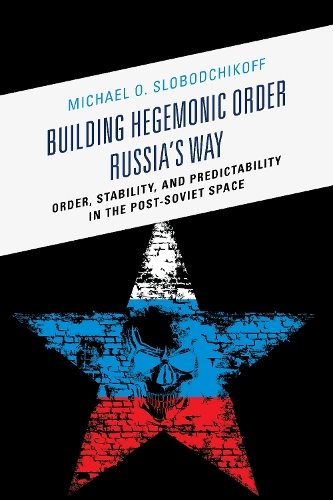
Building Hegemonic Order Russia's Way: Order, Stability, and Predictability in the Post-Soviet Space
(Paperback)
Available Formats
Publishing Details
Building Hegemonic Order Russia's Way: Order, Stability, and Predictability in the Post-Soviet Space
By (Author) Michael O. Slobodchikoff
Bloomsbury Publishing PLC
Lexington Books
17th May 2016
United States
Classifications
Professional and Scholarly
Non Fiction
Central / national / federal government policies
327.47
Physical Properties
Paperback
212
Width 152mm, Height 227mm, Spine 14mm
295g
Description
This book examines Russias emergence after the collapse of the Soviet Union and its creation of a security architecture in the post-Soviet space. Many scholars argue that Russia is a coercive power in the region that forces states to act in only its own interests. While acknowledging Russias power this author argues that it is not able to merely force states to behave as it wants them to. Instead, Russia must use bilateral and multilateral cooperation to develop a security architecture that provides order, stability and predictable behavior for both Russia as the hegemon and the weaker powers in the region. By building this security architecture, Russia and the other states in the post-Soviet space are better able to achieve their strategic goals and provide for their own security. To achieve this, weaker states are able to press for certain concessions from Russia regarding how to structure bilateral relations as well as multilateral organizations. While Western politicians have argued that Russia has tried to reestablish the Soviet Union through coercive means, the reality is much more of a nuanced interaction among all of the states in the region, which ensures state sovereignty while allowing the weaker states to pursue their own interests. Using network analysis, this author shows how the regional structural architecture of cooperation was built and indicate how Russia is able to achieve order. This book also shows that there is a lack of order where states have refused to cooperate in building the structural architecture, which has led to conflict and territorial disputes.
Reviews
[T]his book raises some important issues and provides analysis of subjects of great concern to observers of Russian foreign policy and students of international relations theory. * Slavic Review *
Author Bio
Michael O. Slobodchikoff is lecturer of political science at Troy University.
